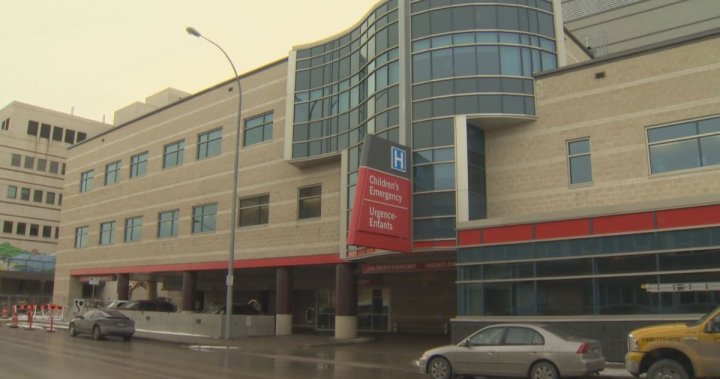On New Year’s Day, Joy Hataley’s mother was taken to the emergency room at Winnipeg’s Health Sciences Centre with a nosebleed that wouldn’t stop.
Hataley kept in touch with her over the phone from her home in Kingston, Ont., but the 86-year-old with dementia had no one else with her, Hataley said, and after two hours without seeing a doctor, her mother attempted to leave on her own.
“I called security, they found her in the hallway in the wheelchair, rolling herself around trying to find an exit, in Winnipeg in winter, downtown. That is not going to be a good outcome for an 86-year-old female,” she said, adding that her mother was initially told she would have to wait 30 hours to see a doctor.
She said in this case, the wait ended up being 12 hours, and her mother went home after 18.
As a doctor herself, Hataley worries about what could have happened. “I like to think someone would have caught it, and someone may have caught it. But, to even see that vulnerability is there, and it’s there at so many levels in our system,” leaves her concerned.
“It’s devastating. Just absolutely devastating,” she said.
Health authorities say a high volume of respiratory virus patients means those needing less urgent care are waiting much longer.
Dr. Joss Reimer, chief medical officer for the Winnipeg Health Region, said a lot of patients sick with respiratory viruses translates into staff getting sick and unable to come into work.
Get the latest Health IQ news.
Sent to your email, every week.
“We’re really struggling with having less staff than we usually have, and a higher demand. It is meaning that some people are waiting a long time for care, and none of us want to see that, I know our staff are working so incredibly hard,” she said.
To get a grasp of what wait times, Reimer said, “We really want people to look at our website: myrightcare.ca, where we post all of our wait times. Not only for our emergency rooms and urgent care centres, but also for our walk-in, connected care clinics, and even for some private clinics.”
Thomas Linner, provincial director of the Manitoba Health Coalition said current wait times signify a system that needs immediate changes.
“We’ve got to be working both sides of this. We’ve got to be doing what we can to reduce the amount of people who are coming (to hospitals), by getting those vaccines in their arms, and we need to be getting more health-care professionals to the bedside,” he said.
Linner says aggressive recruitment and retention measures are needed to get the staff hospitals need, which will improve patient care.
“Above all, we need more people,” Reimer said. Right now, she said nurses and doctors and coming in and doing extra shifts, dropping vacation times, delaying their breaks and working overtime, and some people have been pulled in from the community.
Linner added that strengthening mask mandates in hospitals, and setting up more public vaccination clinics would also be helpful.
“These are good temporary measures, because what we need is extra hands to help out,” Reimer said. “But we also know that–especially coming out of COVID–our staff are burnt out,” she said.
Linner said “What we need is for real, concrete action in the near future.”
Long-term solutions might look like opening up new wards, increasing training and class sizes, and shifting how care is managed, Reimer said.
In the meantime, she said not to be afraid of going to an emergency room. “If you need emergency care, please do come,” but, “we also want people to know all the different options that are available to them,” which are available on myrightcare.ca.
“One thing Manitobans can do is to get vaccinated,” she said, adding, “Getting vaccinated will help decrease the number of people who get infected. It decreases who you can potentially spread it to. It’s just a great way to contribute to being part of the solution.”
Having patience for “staff who really are doing their absolute best,” is also welcomed relief.
Manitoba’s health minister said earlier this week that the province remains committed to listening to front line staff, as it creates a roadmap to recruit and retain more nurses and doctors.
Linner said that this is important. “It’s also about building a culture of transparency and trust,” he said.
— with files from Global’s Katherine Dornian
© 2024 Global News, a division of Corus Entertainment Inc.




